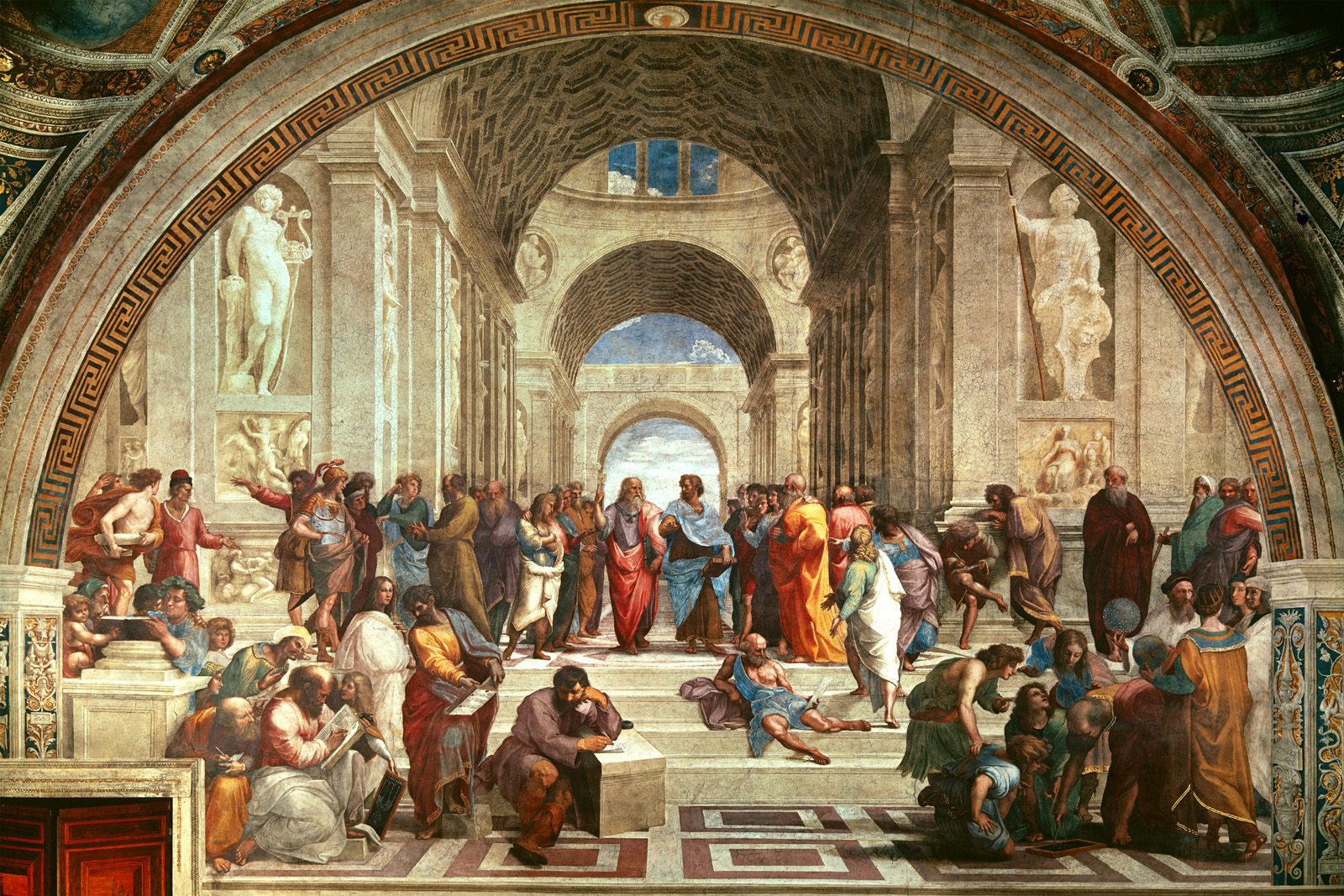When I first set out to start this blog, the idea behind it was that it would become the entirety of my thought space as I progress through learning and growing in my studies. While I think I have succeeded to some degree at writing larger, more thought out posts, I would also like to be better at posting more frequent smaller updates as well.
One thing I am going to start trying is an “article round-up” once a week, similar to Tim Challies or Mark Driscoll. The idea behind this is that I’ll be posting my favorite/most influential blog posts and other articles that I’ve read during the previous week. This will hopefully also increase a network with other blog writers as I read and re-post what they are writing.
I’m calling these posts “Sola Wednesdays” (a graphic for this is coming soon), 1) because I am a reformed nerd so it just makes sense and 2) because I am posting these articles on Wednesday alone.
Sound off in the comments below what you think of the new idea!
—–
1) Why I’m Not Overjoyed Our Town’s Adult Bookstore Closed
“So my hunch is that the local adult bookstore didn’t close because the community lost its interest in pornography, but because their interest has gotten worse and more demanding.”
A sad reality.
2) Why are millenials leaving church? Try atheism
“It appears that atheists and Christians are finally working together on the same task: getting millennials to leave the church.”
3) Latin Words and Phrases Every Man Should Know
“Beginning in the 1960s, college students demanded that the curriculum be more open, inclusive, and less Euro-centric. Among their suggested changes was eliminating Latin as a required course for all students. To quell student protests, universities began to slowly phase out the Latin requirement, and because colleges stopped requiring Latin, many high schools in America stopped offering Latin classes, too. Around the same time, the Catholic Church revised its liturgy and permitted priests to lead Mass in vernacular languages instead of Latin, thus eliminating one of the public’s last ties to the ancient language.”
I hope the authors would be proud of my title for these new posts!
4) Reza Aslan Misrepresents His Scholarly Credentials
“It may be that Aslan sensed a tougher interview from Lauren Green than he is accustomed to. Hence he immediately went into high-dudgeon mode, and made the ten minutes all about her alleged disrespect of him and his alleged scholarly credentials. But in order to change the subject he told a string of gratuitous falsehoods about himself. Perhaps that master’s in fiction writing came in handy.”
This interview has been blowing up the internet. Here is the side nobody is talking about.
5) Have Archaeologists Found King David’s Palace?
“Where, then, should we stand on this discovery? On the one hand, we need to be careful not to buy into the speculative sensationalism that we see and read in the news and that, unfortunately, is sometimes purveyed by archaeologists.
On the other hand, we need not fall into the trap of an automatic hermeneutic of suspicion that dominates the field of archaeology. Let us patiently wait for all the evidence of the excavation to emerge. Then we will have a better idea if this is really King David’s Palace.”
While still speculative, I find this type of stuff fascinating.
6) ELCA Has Biggest Split in American Church History
“When the ELCA was formed in 1988 they had 5.2 million members, but they are now down to only 4 million members–a staggering loss of over 1.2 million members, or 23% of their membership. They have also lost 1,500, or 13%, of their congregations, from approximately 11,000 to 9,500. As they “celebrate” this year the 25th anniversary of the ELCA, the fact is that during that time they have lost more members and congregations than make up many entire denominations!”
It is interesting that their attempt to be relevant to culture to “save the denomination” has actually resulted in their biggest decline.
7) 15 Tips on Blogging from John Newton
“Women should be encouraged to blog for the benefit of the entire church, since they naturally write in a style more enjoyable, and less stilted, than men are normally capable of. ‘I have often wished we had more female pens employed in the service of the sanctuary. . . . In the article of essay writing, I think many are qualified to succeed better than most men, having a peculiar easiness of style, which few of us can imitate’ (2:16).”
Every point on this article is very insightful. That one might be my favorite.
8) What One Year of Blogging Has Taught Me
“Don’t compare myself (& my blog) to others. Blogging is discouraging at times. It’s easy to become focused on the number of views, likes, and comments a post gets. In this respect, blogging is a huge challenge for me (and an opportunity for growth with the Lord). I might spend hours crafting a post, only to get few responses and views in the single digits—when this happens, I’m tempted to wonder why I bother. I could be reading or watching Murder She Wrote. But I always remind myself why I’m writing this blog. It’s not to be popular and have lots of views. In the end, I pray that my aim is always first and foremost to glorify and honor the Lord in some way in every post I write. If I keep my eye on that, the stats don’t matter.”
Words from a friend. Well spoken, and very true.
In anticipation of writing a final paper for my Summer philosophy course, I’ve been going back through my course notes. Some things I found useful were some quick thoughts on the question, “Why should Christians study philosophy?”
I think these quick notes and thoughts are helpful and encouraging. These are things I will continue to think about as I pursue Christ with all of my heart and all of my mind.
These were taken from the first day of class with Dr. Stephen J. Nichols, a professor at Lancaster Bible College, adjunct professor at Reformed Theological Seminary and new teaching fellow of Ligonier Ministries. I also found some enlightening pieces of information on sites that operate by selling notes.
1) “Finally, brothers, whatever is true, whatever is honorable, whatever is just, whatever is pure, whatever is lovely, whatever is commendable, if there is any excellence, if there is anything worthy of praise, think about these things.” – Philippians 4:8
The things Paul mentions in this verse are Philosophical categories – truth, honor, justice, love (beauty). Paul commands the Christian to think about and pursue these things.
2) We need to construct our own worldview. We all have a worldview, a context that influences the way we think, interpret the world, and understand our place in the world. As a Christian we have a responsibility not to adopt a worldview, but to construct one and think it through.
3) We need to develop the habit of critical thinking. Our culture is much more receptive than it is critical.
4) We need to foster reflection. Reflection is an art.
5) We need to broaden our world. We can learn from history and missteps.
6) We need places to land – certainty on truth, morality, etc. “Liquid” is a word used to describe our post modern context – there is no place to land, people say we cannot be certain about anything. Christians must have first principles in an age without certainty.
7) We need to love God with our minds. God created us as rational beings –and there is a difference between being rational and rationalism. It is God honoring to do so.
8) Ideas have consequences. How do we help our churches engage ideas? Beliefs/actions/consequences are only the tip of the iceburg. They come from principles/values/beliefs/presuppositions.
9) It can enrich our life. Pop culture is fine and well, but reaching for “top shelf” material and wrestling with it can enrich our lives.
From “A Short Declaration of the True, Lively and Christian Faith”
A man may soon deceive himself, and think in his own fantasy that he by faith know God, love him, fear him, belong to him, when in very deed he doth nothing less.
For the trial of all these things is a very godly and Christian life. He that feel his heart set to seek God’s honor, and studies to know the will and commandments of God, and to frame himself thereunto, and leads not his life after the desire of his own flesh, to serve the devil by sin, but sets his mind to serve God for God’s own sake, and for His sake also to love all his neighbors, whether they be friends or adversaries, doing good to every man, as opportunity serves, and willingly hurting no man ; such a man may well rejoice in God, perceiving by the trade of his life that he unfeignedly hath the right knowledge of God, a lively faith, a steadfast hope, a true and unfeigned love and fear of God. But he that casts away the yoke of God’s commandments from his neck; and gives himself to live without true repentance, after his own sensual mind and pleasure, not regarding to know God’s word, and much less to live according thereunto ; such a man clearly deceives himself, and sees not his own heart, if he thinks that he either know God, loves him, fears him, or trusts in him.
Some peradventure fancy in themselves that they belong to God, although they live in sin; and so they come to the Church, and show themselves as God’s dear children. But St. John says plainly, If we say that we have any company with God, and walk in darkness, we do lie.
Others do vainly think that they know and love God, although they pass not of his commandments. But St. John says clearly, He that says, I know God, and keeps not his commandments, is a liar.
Some falsely persuade themselves, that they love God, when they hate their neighbors. But St. John says manifestly, If any man say, I love God, and yet hates his brother, he is a liar. He that says that he is in the light, and hates his brother, he is still in darkness. He that loves his brother dwells in the light; but he that hates his brother is in darkness, and walks in darkness, and knows not whither he goes: for darkness hath blinded his eyes. And moreover he says, Hereby we manifestly know the children of God from the children of the devil: He that doth not righteously is not the child of God, nor he that hates his brother.
Deceive not yourselves, therefore, thinking that you have faith in God, or that you love God, or do trust in him, or do fear him, when you live in sin : for then your ungodly and sinful life declares the contrary, whatsoever you say or think. It pertains to a Christian man to have this true Christian faith; and to try himself whether he hath it or no; and to know what belongs to it, and how it doth work in him. It is not the world that we can trust to ; the world, and all that is therein, is but vanity. It is God that must be our defense and protection against all temptation of wickedness and sin, errors, superstition, idolatry, and all evil. If all the world were on our side, and God against us, what could the world avail us? Therefore let us set our whole faith and trust in God, and neither the world, the devil, nor all the power of them, shall prevail against us. Let us therefore, good Christian people, try and examine our faith, what it is ; let us not natter ourselves, but look upon our works, and so judge of our faith what it is. Christ himself speaks of this matter, and says, The tree is known by the fruit. Therefore let us do good works, and thereby declare our faith to be the lively Christian faith. Let us, by such virtues as ought to spring out of faith, show our election to be sure and stable; as St. Peter teaches, Endeavour yourselves to make your calling and election certain by good works. And also he says, Minister or declare in your faith virtue, in virtue knowledge, in knowledge temperance, in temperance patience, in patience godliness, in godliness brotherly charity, in brotherly charity love. So shall we show indeed that we have the very lively Christian faith; and may so both certify our conscience the better that we be in the right faith, and also by these means confirm other men. If these fruits do not follow, we do but mock with God, deceive ourselves, and also other men.
Well may we bear the name of Christian men, but we do lack the true faith that doth belong thereunto: for true faith doth ever bring forth good works; as St. James says, Show me thy faith by thy deeds. Thy deeds and works must be an open testimonial of thy faith: otherwise thy faith, being without good works, is but the Devil’s faith, the faith of the wicked, a fantasy of faith, and not a true Christian faith. And like as the devils and evil people be nothing the better for their counterfeit faith, but it is unto them the more cause of damnation ; so they that be christened, and have received knowledge of God and of Christ’s merits ; and yet of a set purpose do live idly, without good works ; thinking the name of a naked faith to be either sufficient for them, or else, setting their minds upon vain pleasures of this world, do live in sin without repentance, not uttering the fruits that do belong to such an high profession; upon such presumptuous persons and willful sinners must needs remain the great vengeance of God, and eternal punishment in hell, prepared for the unjust and wicked livers.
Therefore as you profess the name of Christ, good Christian people, let no such fantasy and imagination of faith at any time beguile you; but be sure of your faith; try it by your living; look upon the fruits that come of it; mark the increase of love and charity by it towards God and your neighbor; and so shall you perceive it to be a true lively faith. If you feel and perceive such a faith in you, rejoice in it; and be diligent to maintain it and keep it still in you ; let it be daily increasing, and more and more be well working ; and so shall you be sure that you shall please God by this faith ; and at the length, as other faithful men have done before, so shall you, when his will is, come to him, and receive the end and final reward of your faith, as St. Peter names it, the salvation of your souls. The which God grant us, that hath promised the same unto his faithful ; to whom be all honor and glory, world without end.
Amen.
So I’ve been reading through some of Dietrich Bonhoeffer’s sermon transcripts prior to his arrest and subsequent death. I stumbled upon this gem that I found to be very timely and relevant to events in the church today. The basic background of this sermon is it happened after the new Chancellor, Franz von Papen, took office in Germany. Papen hoped to form a society more in the German tradition, and a part of this tradition was invoking the name of God at the beginning of Parliament sessions. This is something the government used to do, but no longer did and was now going to be reinstated by Papen.
This sermon excerpt is taken from a sermon given on June 12, 1932 called “Risen with Christ.” It is on Colossians 3:1-4 :
If then you have been raised with Christ, seek the things that are above, where Christ is, seated at the right hand of God. Set your minds on things that are above, not on things that are on earth. For you have died, and your life is hidden with Christ in God. When Christ who is your life appears, then you also will appear with him in glory.
“Dear congregation, that is certainly an extremely off-putting way to start a conversation with a person: Since you have been raised with Christ, do this and that. We have been baptized. We have been confirmed. There were times when we felt like opening the Bible. We are interested in various religious questions. Maybe we even stand by our church with loyalty and love. And finally, after all: we live in a world that over the last one and a half to two thousand years under the name of Jesus Christ has developed as a Christian world. And nevertheless: if anyone tried to start a conversation with us by just speaking to us about the fact that we have been raised with Christ, we would probably prefer not to continue to speak with them.
…
One need only walk through the streets, look at the people, and ask yourself whether they accept this premise and live their lives on the basis of it, in order to see that what we call Christianity is, in human terms, hopelessly in need, that it is greatly impoverished, whether the churches are filled to overflowing as in America or almost empty as in much of Germany.
Our fathers still said, “In the name of God, Amen.” They still lived under the illusion that with that, they had said something that everyone had in common, that was an obligation to them all, that bound them all together. But they probably never allowed this “In the name of God, Amen” to become too dangerous, too disturbing, too revolutionary.
And why should they? This opening, this premise, could just as well mean everything as nothing. Having said these words, one could confidently draw the line and just go on, unworried and unswerving, and in the name of humankind make decisions and decrees and pass statutes, whatever one thought was good and whatever one liked. One went one’s way in complete freedom, with the name of God harmlessly backing one up and the earthly well-being of human beings in view.
…
Perhaps at first we are intoxicated by this grandiose prospect; we feel drunk in this gigantic freedom, without God and without hope, without a goal and without restraint, rushing violently ahead into chaos. Even the greatest futility can be intensified into pathos and art, into life and motivation. But as soon as we stop, sober up from our intoxication, come to our senses, it becomes unbelievably empty inside us: “Do you not taste the cup of nothingness, that dark drink?” And now what, what do we want now? Do we want to survive another crisis and then die, or what do we really want? We are told: “I have been through too much, I cannot be without religion anymore”; and that probably means: I have already looked too deeply into nothingness to be able to stand being in it any longer. So go back – but back to where? We read that a government issues a proclamation that a whole nation should be rescued from collapse – by the Christian worldview. So we are all fleeing, individuals and nations, fleeing from an incomprehensible last collapse. “In the name of God, Amen” is to be used again. Religion is to be cultivated again and a Christian worldview spread.
Oh how poor, oh, how weak, oh, how pitiful all of that sounds. Do we think that we would really let ourselves be taken captive a second time by this “In the name of God, Amen?” That we would let it really determine our actions, that we, you and I, rich and poor, German and French, would let ourselves be bound together by this name of God? Or is there not really, hidden behind our religious tendencies, our irrepressible craving for freedom and our own will – to in the name of God what we want, in the name of the Christian worldview to play off one nationality against another and stir them up to conflict with one another?
And only now does it fall like scales from our eyes; only now are we overcome by the certainty of the monstrous fact – that we are fleeing from God. Whether we dare to drink the cup of nothingness, that dark drink, or we avoid it by taking refuge in religious busyness and talk, we are fleeing from that other cup that the Bible has tasted and which it proclaims to the world in a powerful voice: the cup of the wrath of God, the cup of the consuming fire of the living God. Our disobedience is not that we are so little religious but that we actually would like very much to be religious, find it very edifying when someone somewhere says and writes: “In the name of God, Amen,” are very much reassured when some government or other proclaims the Christian worldview. It is our disobedience, it is our fleeing, it is our calamitous downfall – that we, the more pious we are, are all the less willing to let ourselves be told that God is dangerous; that God does not allow God’s self to be mocked; that we human beings must die if we really want to have anything to do with the living God; that we must lose our life if we really want to gain it; that we must be baptized not only with water but also with fire and the spirit; that this “In the name of God, Amen,” if it really is to have any meaning and not be just empty talk, is a majestic region one can enter only as a completely captive slave – or not at all.
To drink this cup of God’s, if one really knows what one is doing, that is serious. And to drink the cup of nothingness, that dark drink, if one really knows what one is doing, is also serious – and the eternal God with his glowing promise is infinitely closer to those who do this than they could imagine from afar.”



